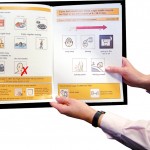
Dolly Sud writes her debut elf blog on a recent retrospective analysis, which compares dose changes of risperidone and aripiprazole with patients’ individual genotype.
[read the full story...]
Dolly Sud writes her debut elf blog on a recent retrospective analysis, which compares dose changes of risperidone and aripiprazole with patients’ individual genotype.
[read the full story...]
In Dr David Trickey’s debut blog for Mental Elf, he comments on the new ISTSS treatment guidelines for children and young people with post traumatic stress disorder.
[read the full story...]
Muna Dubad explores a Danish qualitative analysis of young adults’ perspectives of a smartphone app (MindFrame), which is designed for people recently diagnosed with schizophrenia, to empower them to self-manage their condition.
[read the full story...]
Sarah Carr shares her own experiences of psychiatric medication and provides a critical reading of Jasna Russo’s new #PsychDrugDebate paper: ‘Through the eyes of the observed: re-directing the research on psychiatric drugs’.
[read the full story...]
Alison Faulkner dissects the new McPin Foundation Talking Point Paper by Jasna Russo entitled: Through the eyes of the observed: re-directing research on psychiatric drugs.
Follow #PsychDrugDebate today on Twitter for further discussion about this vital issue.
[read the full story...]
John Baker summarises a review of commonly prescribed medication that covers seven psychiatric drugs, including antidepressants, antipsychotics, benzodiazepines, amphetamines, methylphenidate and cholinesterase inhibitors.
[read the full story...]
For some people with learning disabilities, difficulties in eating and swallowing mean that enteral tubes are used to consume food and sometimes to take medication.
Here, Fawn Harrad looks at a Belgian study in which researchers observed whether staff in residential settings were following guidelines in the use of enteral feeding tubes to administer medications.
[read the full story...]
People with learning disabiilties may be on multiple medications and be on them for long periods of time. They need access to the best possible support to help them make decisions about their medications. In this post, we look at an action research study that offered training to people to see if it improved their knowledge and their capacity to consent.
[read the full story...]
It is estimated that in UK, up to 200,000 people with learning disabilities are given anti-psychotic drugs, which can have powerful side effects, like risk of weight gain, impotence and strain to the cardiovascular system, and with little evidence of their efficacy in treating challenging behaviour. There are equal concerns about the use of anti-convulsant [read the full story…]

Making the decision to consent to medical treatment requires access to information, presented in clear and understandable ways. There is evidence that that people with learning disabilities do not always understand information about medications they are prescribed, for example from the medication matters project carried out at the Norah Fry centre which produced a series of [read the full story…]